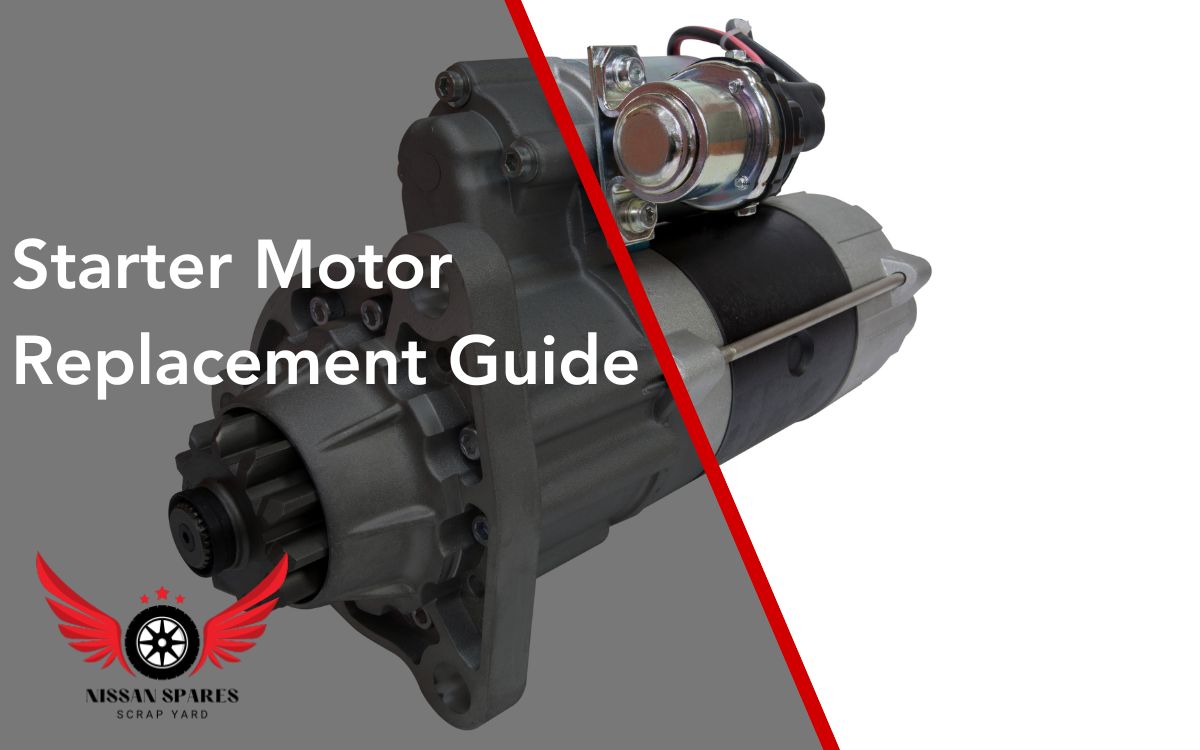Starter Motor Replacement Guide
The starter motor is a crucial component of your vehicle’s electrical system, responsible for initiating the engine’s operation. When this vital part fails, it can leave you stranded and facing potentially expensive repairs. This comprehensive guide will walk you through the process of replacing your vehicle’s starter motor, offering insights and tips for a successful DIY job.
Key Takeaways:
- Lifespan: The average starter motor lasts 160,000 to 240,000 km.
- Failure Rate: Starter motor failures account for approximately 4% of all vehicle breakdowns.
- Replacement Cost: Average cost ranges from R6,000 to R11,250 (based on $400 to $750 USD).
- Labor Costs: Labor accounts for 40-60% of the total replacement cost.
Understanding Starter Motors: Function and Failure Signs
Before diving into the replacement process, it’s essential to understand how starter motors work:
- Function: Engages with the engine’s flywheel to initiate rotation
- Components: Includes solenoid, armature, brushes, and pinion gear
- Operation: Activated by the ignition switch, drawing power from the battery
Signs of a failing starter motor include:
- Grinding noise when starting
- Clicking sound but engine doesn’t turn over
- Slow cranking or intermittent starting issues
- Smoke from the starter motor area
Regular maintenance, including starter motor checks, is as important as other vehicle maintenance tasks like spark plug replacement.
Preparing for Starter Motor Replacement: Tools and Safety
Before beginning the replacement process, gather these essential tools and materials:
- New starter motor (matching your vehicle’s specifications)
- Socket set and wrenches
- Jack and jack stands
- Gloves and safety glasses
- Wire brush
- Multimeter (for testing)
Safety is paramount when working on your vehicle’s electrical system. Always disconnect the battery before starting work and use jack stands when lifting the vehicle.
Step-by-Step Starter Motor Replacement Guide
Follow these steps for a successful starter motor replacement:
1. Prepare the Vehicle
- Park on a level surface and engage the parking brake
- Disconnect the negative battery terminal
- Lift and secure the vehicle if necessary for access
2. Locate and Remove the Old Starter
- Identify the starter motor location (typically near the transmission bell housing)
- Remove any components blocking access to the starter
- Disconnect electrical connections to the starter
- Remove mounting bolts and carefully extract the starter
3. Install the New Starter Motor
- Compare the new starter to the old one to ensure proper fitment
- Clean the mounting surface on the engine block
- Position the new starter and secure with mounting bolts
- Reconnect electrical connections
4. Test and Finalize
- Reconnect the battery
- Attempt to start the engine to verify proper operation
- Check for any unusual noises or vibrations
For more detailed information on maintaining your vehicle’s electrical system, check our guide on battery replacement.
Starter Motor Replacement Comparison Table
| Aspect | DIY Replacement | Professional Service |
|---|---|---|
| Average Cost | R3,000 – R6,000 (parts only) | R6,000 – R11,250 (parts and labor) |
| Time Investment | 2-4 hours | 1-2 hours |
| Skill Level Required | Intermediate | Professional |
| Tools Needed | Basic hand tools, jack stands | Provided by service center |
Maintenance Tips for Prolonging Starter Motor Life
To maximize the lifespan of your starter motor:
- Maintain Battery Health: A weak battery puts extra strain on the starter
- Address Electrical Issues Promptly: Parasitic drains can damage the starter
- Avoid Prolonged Cranking: If the engine doesn’t start quickly, wait before trying again
- Keep Engine Bay Clean: Prevents corrosion and damage to electrical components
Regular maintenance, including tasks like air filter changes, contributes to overall engine health and can reduce strain on the starter motor.
Troubleshooting Common Starter Motor Issues
If you encounter problems after replacement:
- Starter Doesn’t Engage: Check electrical connections and solenoid
- Grinding Noises: Ensure proper alignment with flywheel
- Intermittent Starting: Test battery and alternator for issues
For alternator-related problems, our alternator replacement guide can provide useful insights.
Conclusion: Ensuring Reliable Starts
Replacing your vehicle’s starter motor is a significant maintenance task that offers several benefits:
- Reliable starting in all conditions
- Prevention of unexpected breakdowns
- Protection of other electrical components from strain
- Potential cost savings compared to professional replacement
While the replacement process can be complex, following this guide and using quality parts can help ensure a successful outcome. If you’re unsure about any step, consider seeking professional assistance to avoid costly mistakes.
Remember, proper maintenance of your vehicle’s electrical system, including timely timing belt replacements, can prevent undue stress on your starter motor and extend its life.
FAQ
How long does a starter motor typically last?
On average, starter motors last between 160,000 to 240,000 km. However, this can vary based on usage patterns and vehicle make.
Can I drive with a failing starter motor?
While you might be able to start the car with alternative methods (like push-starting), it’s not recommended to drive with a failing starter as it could leave you stranded.
How can I tell if it’s the starter motor or the battery causing starting problems?
If jump-starting the car works consistently, it’s likely a battery issue. If jump-starting doesn’t help or only works sometimes, the starter motor might be the culprit.
Is it worth rebuilding a starter motor instead of replacing it?
In some cases, rebuilding can be cost-effective, especially for older or rare vehicles. However, for most modern cars, replacement with a new or remanufactured unit is often more practical and reliable.
Can weather conditions affect starter motor performance?
Yes, extreme cold can make starting more difficult and put additional strain on the starter motor. Ensuring your battery is in good condition can help mitigate these issues.


